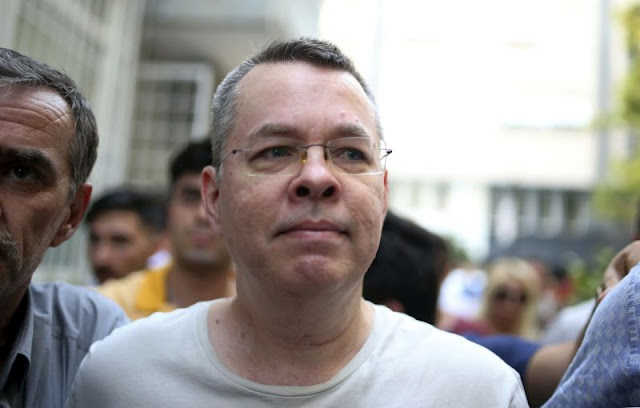IZMIR, Turkey — American pastor Andrew Brunson walked out of court a free man today after 24 months of imprisonment, including house arrest.
A Turkish judge convicted Brunson on charges of “providing aid to terrorist groups without being a member,” while sentencing him to time served and lifting a ban on foreign travel, clearing the way for his return to the U.S.
Brunson hugged his wife and shed tears of joy as he left the courtroom flanked by an American delegation. Making a statement in perfect Turkish, the Evangelical Presbyterian minister, who moved to Turkey in 1993, said, “I’m an innocent man — I love Jesus, and I love this country.”
Brunson’s release ends a sore diplomatic saga between Turkey and the U.S. Both President Trump and Vice President Pence have been outspoken in their calls for Turkey to release the pastor. After repeated attempts to negotiate a deal to secure Brunson’s release, the U.S. responded with sanctions against Turkey, worsening an economic crisis that has seen the Turkish lira lose nearly 40 per cent of its value this year. Brunson’s final hearing also came at an opportune time for Turkey as investigators continue probing the disappearance of Saudi journalist Jamal Khashoggi in Istanbul.
Brunson, who had maintained his innocence throughout the the trial, ran a small Evangelical Presbyterian parish in the coastal city of Izmir with about 50 members. He was active in humanitarian aid projects to serve Syrian refugees, and that’s where Turkish investigators say he came in contact with members of terrorist groups.
He was jailed in October 2016 amid accusations of having links to groups Turkey blames for a bloody coup attempt three months earlier. Several of Brunson’s parishioners testified as witnesses, both for and against him.
The final courtroom drama played out in a series of bizarre and dramatic surprises as several witnesses for the prosecution recanted their testimonies.
One woman said she did not personally know Brunson. Two men contradicted their past assertions. When the newly appointed prosecutor asked them about past statements they made asserting that a parishioner — a member of the blacklisted Kurdistan Workers Party — was building bombs, both men said that the statements were rumors they had heard from the other.
One witness accused another who testified against Brunson of holding a vendetta after he was kicked out of the congregation.
Another witness was asked by the prosecutor why he believed Brunson was connected to terrorist groups. The man replied, “I never saw any bombs or bombers, but I’m a Turkish nationalist — to me, all Syrians are terrorists.”
